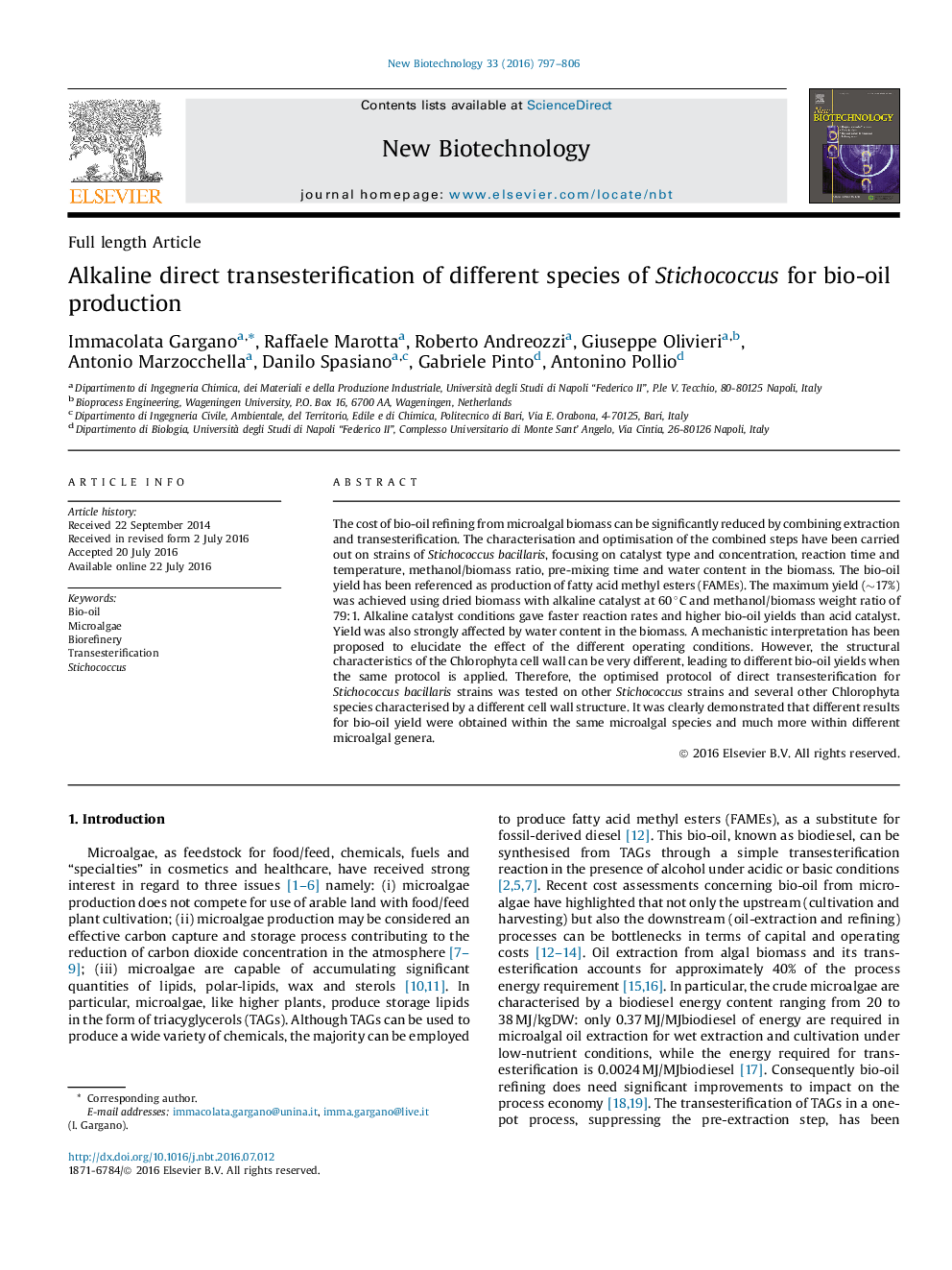| Article ID | Journal | Published Year | Pages | File Type |
|---|---|---|---|---|
| 6452879 | New Biotechnology | 2016 | 10 Pages |
â¢Direct transesterification of Stichococcus genus without any extraction.â¢The maximum bio-oil yield was close to 17% under alkaline conditions.â¢Influence of the catalyst, methanol/biomass weight ratio, time and temperature.â¢The pre-contact time did not affect bio-oil yield.â¢The increase of biomass water content significantly reduced the bio-oil yield.
The cost of bio-oil refining from microalgal biomass can be significantly reduced by combining extraction and transesterification. The characterisation and optimisation of the combined steps have been carried out on strains of Stichococcus bacillaris, focusing on catalyst type and concentration, reaction time and temperature, methanol/biomass ratio, pre-mixing time and water content in the biomass. The bio-oil yield has been referenced as production of fatty acid methyl esters (FAMEs). The maximum yield (â¼17%) was achieved using dried biomass with alkaline catalyst at 60 °C and methanol/biomass weight ratio of 79:1. Alkaline catalyst conditions gave faster reaction rates and higher bio-oil yields than acid catalyst. Yield was also strongly affected by water content in the biomass. A mechanistic interpretation has been proposed to elucidate the effect of the different operating conditions. However, the structural characteristics of the Chlorophyta cell wall can be very different, leading to different bio-oil yields when the same protocol is applied. Therefore, the optimised protocol of direct transesterification for Stichococcus bacillaris strains was tested on other Stichococcus strains and several other Chlorophyta species characterised by a different cell wall structure. It was clearly demonstrated that different results for bio-oil yield were obtained within the same microalgal species and much more within different microalgal genera.
Graphical abstractDownload high-res image (126KB)Download full-size image
